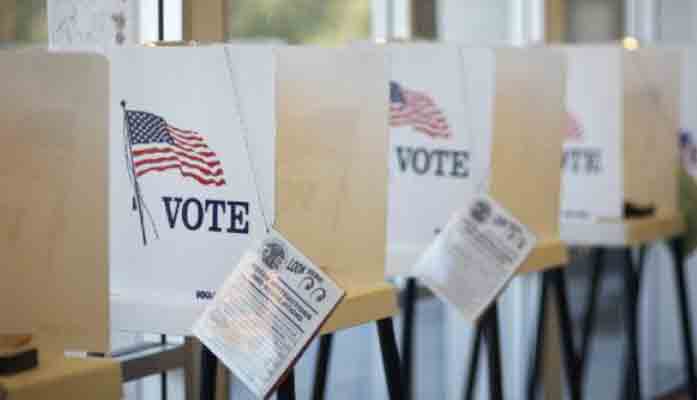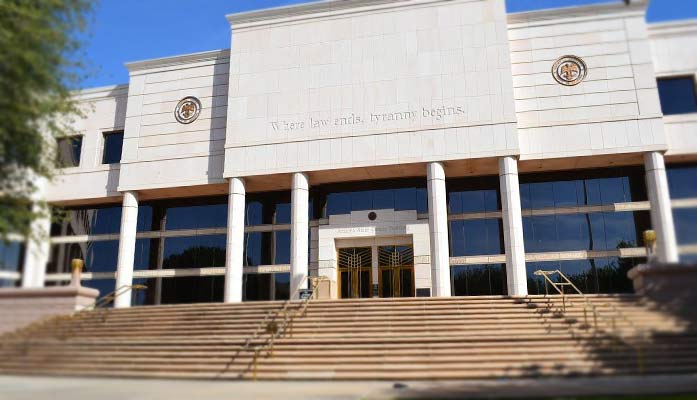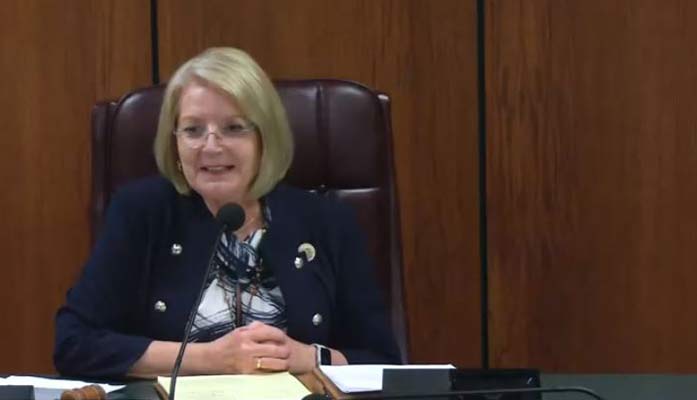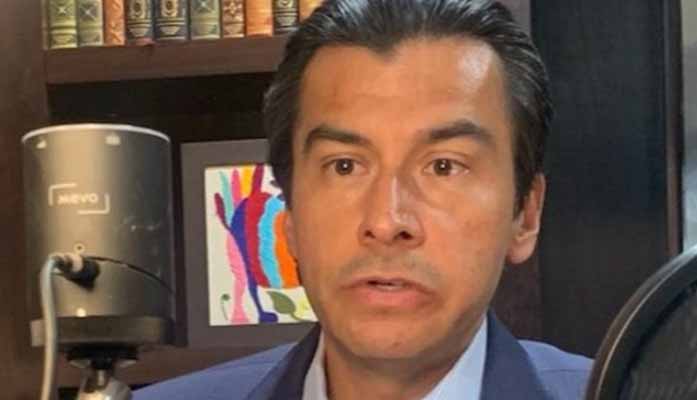
by Corinne Murdock | Mar 9, 2022 | Education, News
By Corinne Murdock |
Tucson High Magnet School (THMS), part of the Tucson Unified School District (TUSD), announced that it would host its first-ever drag show in early May. The THMS employees behind the event are Zobella Vinik and Sunday Hamilton, both THMS counselors that also lead the LGBTQ+ student club, “Q Space,” in which students learn about LGBTQ+ history and are encouraged to explore their identities. Vinik and Hamilton explained on the event announcement that the drag show would occur annually; the last day to sign up for the event was Monday, with a mandatory meeting for participating students on Tuesday.
TUSD spokeswoman Karla Escamilla told AZ Free News that the drag show was a club activity coordinated by TUSD students, not staff. The original social media post about the event identified it as the “THMS Drag Show,” with the username “@tucsonhigh_drag.” Escamilla added that the event not occurring in association with TUSD would constitute as gender expression discrimination.
“The event is a student club activity. It is driven by students, not TUSD staff. This is not an instructional activity and it’s being held on a Saturday. Tucson Unified has a strong policy of nondiscrimination regarding gender expression and restricting the free expression of these high school student club members would be inconsistent with that policy. Participation in the show is voluntary in all capacities (performances, lighting, audio & visual, and outdoor stage set-up),” wrote Escamilla.
The counselors created an Instagram page for the drag show, which followed one other account, THMS counseling, which followed the account in return along with the THMS yearbook account. The counselors also invited students to access a “drag inquiry form” using their Microsoft Office student account. AZ Free News was unable to access the form by press time. The original Instagram post of a flyer announcing the event was removed.
One of the counselors behind the event, Hamilton, is a transgender man whose legal name is “April Hamilton,” once a star student and athlete hailing from Cienega High School. In a podcast during her final year of working as a University of Arizona (UArizona) graduate student within the LGBTQ+ Resource Center, Hamilton asserted that the “binary system” of gender was “violent and harmful.” Hamilton said at the time that she really identified as a “nonbinary gay boy.”
“Black women are definitely seen more as masculine,” asserted Hamilton.
The other counselor, Vinik, serves as the educator support lead for Scholarships A-Z (SA-Z), an organization working to help illegal immigrants earn a higher education and relevant educational scholarships. Among the organization’s biggest donors are A for Arizona, Community Food Bank of Southern Arizona, Community Foundation for Southern Arizona, the Ford Foundation, Graesser Foundation, Joe Kalt & Judy Gans Family Foundation, National Justice For Our Neighbors, OneAZ Community Foundation, Resist, and Unitarian Universalist Funding Program.
While earning a degree in Peace and Justice Studies with a minor in Latinx Studies from Tufts University, Vinik organized “A Resolution to Establish Equal Opportunity for Undocumented Students” through the group she presided over, Tufts United for Immigrant Justice (UIJ), in a campaign to make higher education accessible for illegal immigrants at the school. Vinik’s work resulted in the university awarding admission and scholarships to illegal immigrants.
Vinik has also worked as a preschool teacher and a K-12 substitute teacher, and earned a master’s degree in school counseling from New York University last year.
“[Zobella] is working to unlearn practices maintained by white supremacy, capitalism, and patriarchy and recommits daily to prioritize mental health, community care, and visions for freedom offered by Queer BIPOC organizers,” stated Vinik’s profile.
Neither Hamilton or Vinik responded to our questions on the event by press time.
Corinne Murdock is a reporter for AZ Free News. Follow her latest on Twitter, or email tips to corinne@azfreenews.com.

by Corinne Murdock | Mar 9, 2022 | News
By Corinne Murdock |
On Monday, the Arizona Senate passed two election integrity bills and turned down three others. The two that passed with the Republican majority 16-13, SB1260 and SB1477, make it a class 5 felony to help a non-Arizonan vote and require superior court clerks to give monthly records of felony convictions to the secretary of state so they may unregister those felons.
The three bills that failed — SB1358, SB1475, and SB1478 — were sponsored by State Senator Kelly Townsend (R-Mesa). She ultimately voted against her own bills in a failed attempt to have the senate reconsider them.
The first bill, SB1358, would’ve required ballots in counties with voting centers to be separated and grouped by precinct for hand count audits. SB1475 was a striker bill to grant greater power to the attorney general to enforce election law concerning federal elections; originally, the bill made anyone falsely claiming to be a citizen while registering to vote guilty of a felony.
SB1478 would have prohibited county boards of supervisors from requiring specific marking on paper ballots, as well as from providing pens that would bleed through ballot paper. The bill related back to the SharpieGate scandal.
SB1358 failed 13-16, with State Senators Paul Boyer (R-Glendale) and Michelle Ugenti-Rita (R-Scottsdale) joining Democrats in voting against the bill. SB1475 and SB1478 both failed 14-15.
Corinne Murdock is a reporter for AZ Free News. Follow her latest on Twitter, or email tips to corinne@azfreenews.com.

by Corinne Murdock | Mar 8, 2022 | News
By Corinne Murdock |
On Tuesday, the Arizona Supreme Court ruled that Pinal County’s transportation excise tax was unlawful. The ruling affects two 2017 voter-approved measures from the Pinal County Regional Transportation Authority (RTA) Pinal County Board of Supervisors. The two measures instituted a tax on purchases under $10,000, constituting a two-tiered retail transaction privilege tax (TPT) that would pay for infrastructure.
The Arizona Supreme Court disagreed with the county’s assertion that the tax afforded a modified and variable rate in accordance with state law.
“We therefore conclude that the two-tiered retail TPT structure in Proposition 417 is neither a ‘modified rate’ nor a ‘variable rate’ under § 42-6106(C). In this case, until the legislature ‘expressly delegates’ to counties the authority to implement this tiered-rate tax on specified businesses—an authority that is ‘strictly construed’ — Pinal County’s two tiered retail TPT structure as part of a transportation excise tax is unlawful and invalid,” wrote the court.
The ruling marked the Goldwater Institute’s seventh Arizona Supreme Court ruling in their favor. The institute’s vice president of litigation, Timothy Sandefur, asserted that the ruling ensured clarity, ease, and lowered costs for businesses.
“The legislature intended state taxes to be uniform — not to allow each of the state’s 15 counties to set their own rules. To allow that would make Arizona inhospitable for business, because it would transform the state into a crazy quilt of different tax rules in each locality,” wrote Sandefur. “[I]t marks a victory for taxpayers not just in Pinal County but throughout Arizona. In tough economic times—with inflation and fuel costs rising—the last thing Arizona needs is for public officials to create more and more complicated tax rules that take more of people’s earnings away and drive away job-creating industry.”
Corinne Murdock is a reporter for AZ Free News. Follow her latest on Twitter, or email tips to corinne@azfreenews.com.

by Corinne Murdock | Mar 7, 2022 | News
By Corinne Murdock |
The Arizona Senate kicked off their Monday with a show of bipartisanship. Four Senate Republicans joined their Democratic colleagues in voting against a bill to prohibit local governments from using lobbyists: State Senators Paul Boyer (R-Glendale), Tyler Pace (R-Mesa), T.J. Shope (R-Phoenix), and Senate President Karen Fann (R-Prescott). The bill from State Senator Warren Petersen (R-Gilbert), SB1198, failed 12-17.
The four senators didn’t explain their “no” vote; neither did the Democrats. The bill would’ve prevented counties, cities, towns, school districts, and any other political subdivisions from contracting with or spending money on lobbying services, with exemptions for employees of that local government entity, cities or towns with less than 75,000 citizens, or counties with less than 250,000 citizens.
Peterson explained during the Senate Government Committee that the end of lobbying at the state level several years ago allowed for a “greater balance” between citizens and the state government.
A spokesman for Apache County, Greenlee County, Scottsdale, and Prescott said that the bill was a good idea philosophically but would result in higher costs for the cities and counties. He said that the local governments would have to hire full-time employees to fulfill duties normally filled by lobbyists contracted at lower costs.
The League of Arizona Cities and Towns also opposed the bill. Their spokesman explained that their lobbyists alleviated the burdens of keeping up with the legislature for elected officials.
The Goldwater Institute National Litigation Director Jon Riches said the bill prevented taxpayer dollars from being spent on services that further government interests while ignoring the taxpayer.
“Tax dollars should not go to support status quo special interests at the expense of taxpayers, small businesses, and citizens who might not be able to afford a team of well-funded lobbyists, including lobbyists who often advocate against those taxpayers’ interests,” said Riches.
Arizona Free Enterprise Club Vice President Aimee Yentes concurred with Riches’ statement, insisting that it’s elected officials’ duty to take on the responsibilities that they pass on to lobbyists. Yentes is also a member of the Gilbert Town Council.
Corinne Murdock is a reporter for AZ Free News. Follow her latest on Twitter, or email tips to corinne@azfreenews.com.

by Corinne Murdock | Mar 7, 2022 | News
By Corinne Murdock |
Democratic gubernatorial candidate Marco Lopez has ties to a massive foreign corruption scandal involving a global construction conglomerate Odebrecht and its bribes to politicians globally. According to an investigative report from Arizona Agenda relying on case information from anti-corruption news organization Mexicanos Contra la Corrupción y la Impunidad, Lopez’s company, Intermestic Partners/International Strategic Solutions, received $35,000 from Odebrecht for his several months of work on former Mexican President Enrique Peña Nieto’s 2012 campaign. Ultimately, Odebrecht shelled out $800 million through its secretive business department tasked with bribing all levels of government officials across the world, the “Division of Structured Operations,” earning a minimum criminal fine of $4.5 billion in 2016.
Peña Nieto’s former campaign lieutenant, Emilio Lozoya, connected Lopez’s $35,000 to a $3 million bribe from an Odebrecht shell company: campaign money for public works contracts. Lozoya’s shell business, Latin American Asia Capital Holdings, received the $3 million from Odebrecht before redistributing tens of thousands to Lopez.
According to Lozoya, the invoices that Lopez and others submitted were bogus. Lopez claimed to have worked on something called the “Colombia Project.” Lopez refused to speak with the Arizona Agenda about his ties with Odebrecht and the Peña Nieto corruption.
By all accounts, Lopez would qualify as a career politician. As a teen, Lopez served as a congressional page for former Arizona Congressman Ed Pastor. In his early 20s, Lopez worked on Al Gore’s presidential campaign. In 2001, Lopez was elected mayor of his hometown, Nogales, Arizona, becoming one of the youngest mayors in American history at the time.
Another two years after his election, former Arizona Governor Janet Napolitano appointed Lopez to be the executive director of the Arizona-Mexico Commission. Lopez took on a Latin American policy advisory position within Napolitano’s cabinet. After three years, Napolitano promoted Lopez to serve as her senior advisor on foreign affairs and trade. Napolitano again promoted Lopez in 2008 to direct the Arizona Department of Commerce.
It appears Napolitano didn’t forget Lopez when the White House came to bring her into the Obama Administration in 2008. Not long after Napolitano’s appointment as secretary of the Department of Homeland Security (DHS), Lopez was appointed chief of staff for Customs and Border Protection (CBP). He remained in that position until 2011, before focusing his attention on business ventures of his own. That year, Lopez established the Phoenix-based business and investment advisory group linked to the Odebrecht scandal, Intermestic Partners. Additionally, Lopez began to serve as senior advisor to Forbes’ 2010-2013 richest person in the world: Carlos Slim Helu.
For a decade, Lopez abstained from taking on a political office. Then in March of last year, Lopez announced his candidacy for Arizona governor — the first to do so.
After the report broke, Lopez denied his involvement. He claimed the report was inaccurate because it was heavy with “innuendo, racial stereotypes and falsehoods.”
Indicating any knowledge of Odebrecht’s bribing operations could be a deadly maneuver. Odebrecht’s former vice president, Henrique Valladares, was found dead in his Rio de Janeiro apartment in September 2019, shortly after entering a plea bargain with state prosecutors to reveal who was in on the company’s bribing system. Valladares was one of the key informants in the case. According to state police, the cause of his death was “undetermined.”
Odebrecht was implicated following a smaller Brazilian anti-bribery investigation codenamed “Lava Jato,” or “Car Wash,” that began with the arrest of Brazil’s former national oil company executive, Nestor Cerveró.
Corinne Murdock is a reporter for AZ Free News. Follow her latest on Twitter, or email tips to corinne@azfreenews.com.





